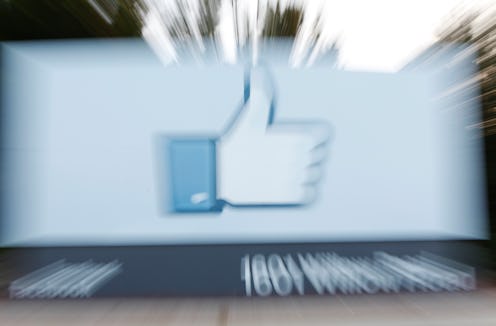When you sneak your phone into the office bathroom you figure you've got one, maybe two minutes to recreationally click some Facebook links before any of your co-workers suspect you've fallen into the toilet, so you have to make that time count. And perhaps out of respect for that precious time, Facebook will start further filtering clickbait headlines from News Feeds. The platform announced the measures today, which will be aimed at the "You won't beLIEVE what he DID"s and "This [totally innocuous thing] happened and her reaction was PRICE! LESS!"s you know and love. Basically, according to Facebook, any "headlines that intentionally leave out crucial information, or mislead people, forcing people to click to find out the answer" are on their way to Facebook extinction.
So how does Facebook filter out the clickbait from the "real stuff"? The platform has a system in place that will recognize key clickbait phrases in headlines. A team at Facebook scanned tens of thousands of headlines to determine these terms, which essentially boiled down to:
(1) if the headline withholds information required to understand what the content of the article is; and (2) if the headline exaggerates the article to create misleading expectations for the reader.
Once posts from a page are flagged as clickbait, Facebook will display posts from it lower in the News Feed. The system is built to learn over time, but once the page stops posting clickbait, the posts will no longer be suppressed by the new measures.
While Facebook is putting this new filtering system into place in response to demand from users and their desire to keep Facebook a place of "authentic communication," it will, of course, impact the way pages work. Facebook has identified their key clickbait terms, but they have not released them to the public — meaning it is entirely possible that headlines not meant to be clickbait are identified as such. That, and some forms of "clickbait" are arguably quite helpful or satisfying. Some stories are genuinely made funny or iconic because of an element of surprise, and some information is far too complicated to condense into a headline. As for how it will affect pages going forward, Facebook doesn't expect too much of a backlash, writing that they "anticipate that most pages won’t see any significant changes to their distribution in News Feed as a result of this change."
So there you have it, folks — you may be peeing in a clickbait-free world soon enough. (But you won't believe what happens next!!)
